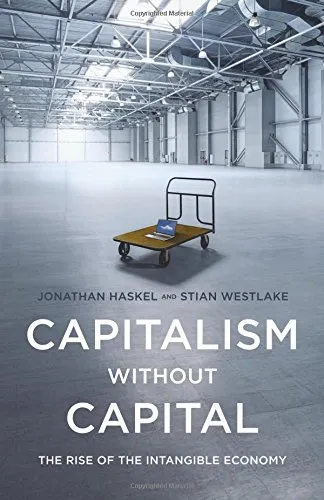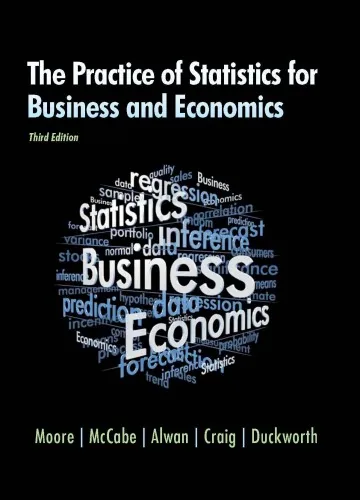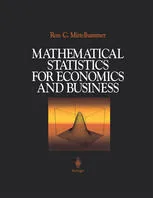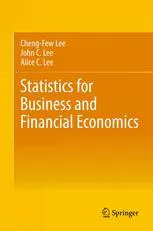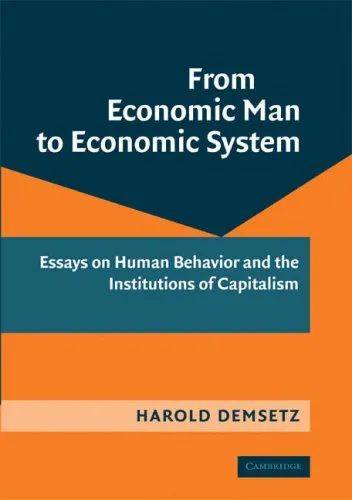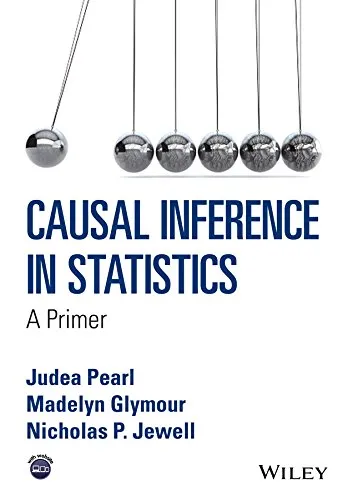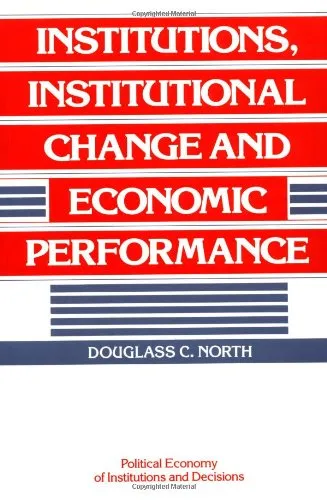Capitalism without Capital: The Rise of the Intangible Economy
4.5
Reviews from our users

You Can Ask your questions from this book's AI after Login
Each download or ask from book AI costs 2 points. To earn more free points, please visit the Points Guide Page and complete some valuable actions.Related Refrences:
Introduction to "Capitalism without Capital: The Rise of the Intangible Economy"
Written by Jonathan Haskel and Stian Westlake, "Capitalism without Capital" is an insightful exploration of one of the most profound shifts in global economics today: the rise of intangible assets and their transformative impact on the economy, businesses, and society. In this book, Haskel and Westlake take readers on a journey to understand how economies reliant on physical assets have evolved into economies driven by intangible investments like software, branding, research, and organizational development.
Drawing from comprehensive research and real-world examples, the book explains the fundamental characteristics that make intangible assets unique and why they have changed the way businesses operate. "Capitalism without Capital" is essential reading for anyone looking to understand the economic forces shaping the modern world, from policymakers and entrepreneurs to academics and curious readers.
The book's primary aim is to illuminate how this shift has created new challenges and opportunities, altered competitive dynamics, and changed the ways organizations create value. With its clear storytelling and rigorous analysis, it unlocks critical insights for navigating this new economic paradigm.
Detailed Summary of the Book
At its core, "Capitalism without Capital" explains how the economic center of gravity has shifted away from tangible investments like factories, machinery, and other physical goods to intangible assets, which are harder to see or touch but incredibly valuable.
Haskel and Westlake outline the unique characteristics of intangible investments, which they call the “four Ss”: scalability, sunk costs, spillovers, and synergies. These features make investing in intangibles dramatically different from traditional physical assets. For instance, intangible assets are scalable, meaning that an investment in software or intellectual property can be used repeatedly at little additional cost. However, they also involve sunk costs since their value cannot usually be recovered upon resale.
The authors go further to illustrate how the intangible economy creates challenges, such as the difficulty of financing intangible investments, inequality in access to intangible-driven growth, and the "Matthew Effect," where success begets success. But they also highlight its potential for generating enormous returns through synergies, where different intangible assets work together to create new value.
Real examples—ranging from high-tech companies to traditional businesses leveraging intellectual property—are provided to ground these concepts. By the end of the book, readers gain a comprehensive understanding of why nations, corporations, and individuals must adapt to thrive in a world where capitalism is increasingly defined by intangibles.
Key Takeaways
- The world's leading economies have transitioned from being based on physical goods to intangible assets such as intellectual property, software, and branding.
- Intangible investments differ fundamentally from tangible ones due to their unique scalability and sunk costs, as well as their propensity to spill over and synchronize with other assets.
- While intangible-driven economies generate high growth potential, they also create challenges, such as economic inequality, barriers to financing, and the risk of monopolies formed through synergy and spillover effects.
- To succeed in the intangible economy, businesses and policymakers must rethink institutions, from tax systems to education and employment policies, to better accommodate and leverage intangibles.
- The shift to intangibles intensifies the divide between those who can capitalize on this new form of capital and those left behind, raising pressing ethical and policy concerns.
Famous Quotes from the Book
“When you look at the most successful companies and economies, you will be struck by how much they invest in things that have no physical form, like computer software, ideas, brands, or business processes.”
“Success in the intangible economy depends on your ability to manage synergies, know-how, and ideas, rather than just land, labor, and capital.”
Why This Book Matters
"Capitalism without Capital" offers an indispensable framework for understanding the 21st-century economy and its profound social and economic implications. It challenges traditional views of economic growth and makes it clear why businesses and governments need to realign their strategies in light of these transformative changes. By shedding light on the dynamics of an intangible-driven world, the book equips readers with the knowledge they need to navigate the future effectively.
Policies, business strategies, and educational systems built around tangible concepts of production and investment are no longer enough. The rise of intangible capital demands new ways of thinking and acting. This book provides not just a diagnosis of the current state but also a vision for how we can thrive in the emerging economic landscape.
Free Direct Download
You Can Download this book after Login
Accessing books through legal platforms and public libraries not only supports the rights of authors and publishers but also contributes to the sustainability of reading culture. Before downloading, please take a moment to consider these options.
Find this book on other platforms:
WorldCat helps you find books in libraries worldwide.
See ratings, reviews, and discussions on Goodreads.
Find and buy rare or used books on AbeBooks.
1346
بازدید4.5
امتیاز0
نظر98%
رضایتReviews:
4.5
Based on 0 users review
Questions & Answers
Ask questions about this book or help others by answering
No questions yet. Be the first to ask!
